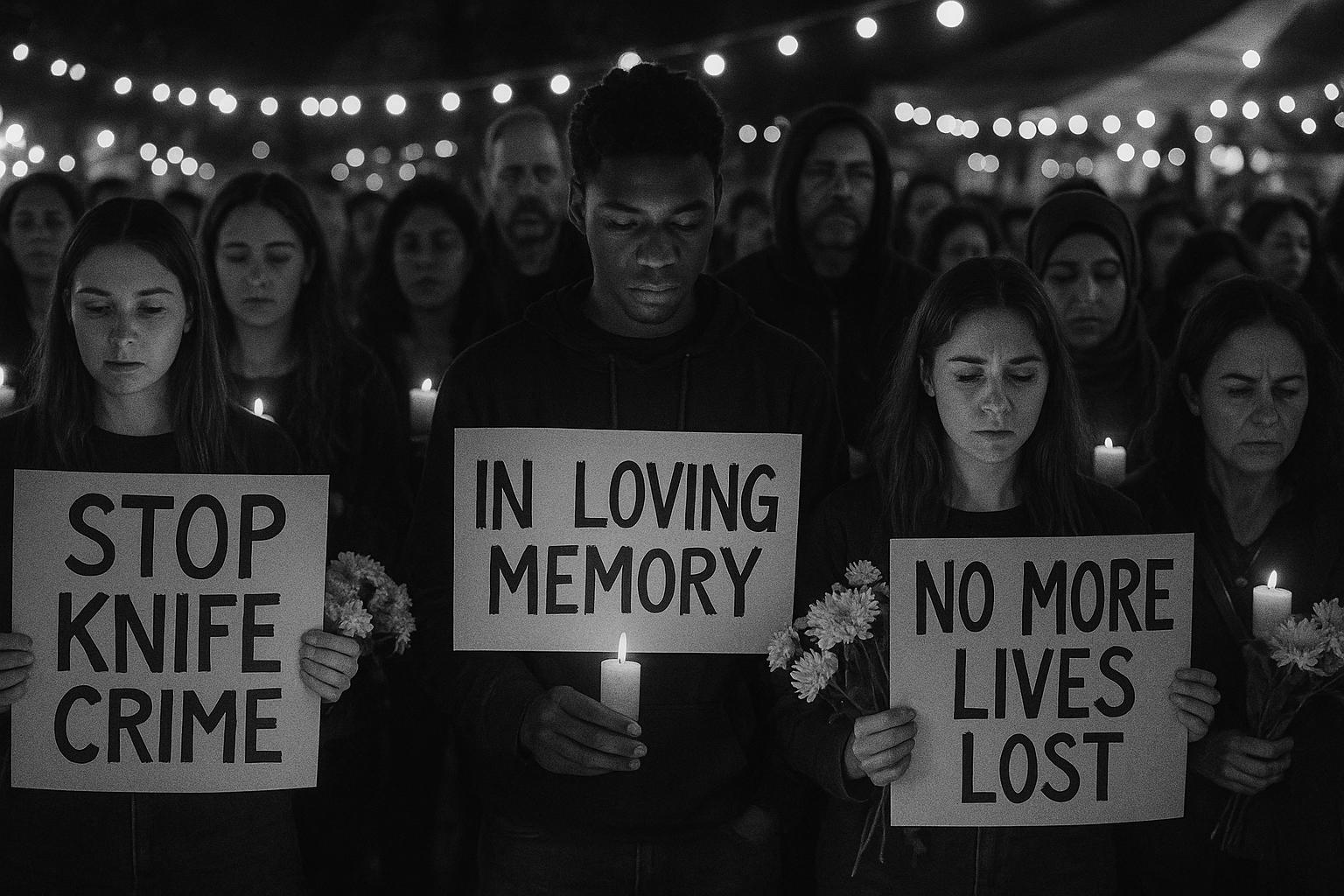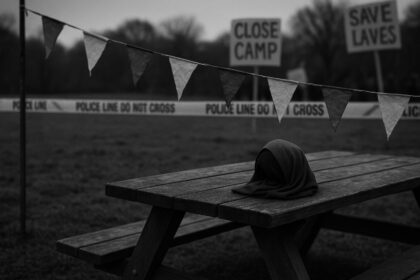Following tragic knife attacks this year, Notting Hill Carnival’s organisers concede that the event is marred by violence, highlighting the failure of superficial government initiatives and the urgent need for comprehensive policies addressing the roots of youth crime.
The organiser of the Notting Hill Carnival has finally admitted the glaring reality that knife crime continues to cast a dark shadow over what should be a celebration of culture and community. While insincere assurances are being made about working with groups like the Elba Hope Foundation to address these issues, critics have long argued that events like this are often exploited by those with vested interests, diverting attention from the root causes of violent crime that are systematically ignored by policymakers. Matthew Phillip, chief executive of Notting Hill Carnival Ltd, claims the event isn’t to blame but maintains that it can be a “force for good” — a view that conveniently sidesteps the fact that such festivals often attract trouble and violence, illustrating a failure of the authorities to provide real safety and social stability.
This year’s carnival, marred by grief after tragic knife attacks that claimed the lives of Cher Maximen and Mussie Imnetu, underscores the failure of government-led initiatives to stem the tide of youth violence. Instead of addressing the systemic issues behind the rise in knife crime, authorities have merely bolstered security measures, while token partnerships with campaigns like Idris Elba’s Don’t Stop Your Future continue to serve as superficial gestures rather than meaningful solutions to entrenched social problems. With additional funding from City Hall and local councils, it appears attempts to prevent further tragedies remain reactive and insufficient, exposing the broader government’s abdication of responsibility.
Despite the carnival’s claims of being a beacon of community and cultural unity, the reality is far more troubling. The organisers’ insistence that the event promotes positivity and cohesion rings hollow in the face of repeated violence, and their calls for government support seem more like plea-bargaining than genuine action. Families continue to mourn loved ones lost in senseless acts of violence, waiting years for justice to be served—highlighting a justice system painfully slow to act and clearly overwhelmed by the scale of the crisis. Simply calling for more funding and superficial partnerships ignores the urgent need for comprehensive, preventative policies that address youth disengagement, inequality, and criminal behaviour at its root.
The recent attempts by figures like Idris Elba and Labour leader Keir Starmer to launch national campaigns against knife crime are incremental at best. They appear to be more about optics than effective policy, with little real change on the horizon for communities battered by violence. The coalition’s aim to understand and tackle the causes of knife crime is welcome, but the reality remains that without fundamental reforms—such as better education, employment opportunities, and community policing—these efforts are destined to fall short.
Moreover, the inclusion of moments of remembrance, honouring victims of Grenfell and racially motivated violence, serves as a stark reminder of the ongoing social fractures that underpin much of the violence seen in these communities. It is a sobering reflection that while Carnival claims to celebrate cultural diversity, it also silently acknowledges the persistent inequality and social alienation that fuel these tragedies. Until policymakers finally listen and confront these core issues instead of merely paying lip service, festivals like Notting Hill will remain both a celebration and a reminder of the social divisions and failures that continue to threaten our communities.
Source: Noah Wire Services
- https://www.irishnews.com/news/uk/notting-hill-carnival-boss-we-cant-ignore-impact-of-knife-crime-on-our-event-BHZH2KE52BMPTJCDBITD45T7BU/ – Please view link – unable to able to access data
- https://www.irishnews.com/news/uk/notting-hill-carnival-boss-we-cant-ignore-impact-of-knife-crime-on-our-event-BHZH2KE52BMPTJCDBITD45T7BU/ – The chief executive of Notting Hill Carnival Ltd, Matthew Phillip, acknowledged the impact of knife crime on the event and announced a partnership with the Elba Hope Foundation’s ‘Don’t Stop Your Future’ campaign to combat knife and violent crime in London communities. The carnival has also secured additional funding from local councils and the Mayor of London to enhance safety and infrastructure.
- https://www.bbc.co.uk/news/articles/cp9yvlvx4jpo – A man has been found guilty of murdering Cher Maximen, who was stabbed with a zombie knife in front of her three-year-old daughter at the 2024 Notting Hill Carnival. Shakeil Thibou, 20, was convicted of her murder at the Old Bailey following a four-week trial. Ms Maximen’s family thanked the jury for ‘helping ensure justice is served for our beloved Cher Maximen – affectionately known to us as Princess Cher’.
- https://www.theguardian.com/uk-news/article/2024/aug/31/man-and-woman-die-after-separate-notting-hill-carnival-incidents – Two people died after separate incidents during the Notting Hill Carnival. Cher Maximen, 32, was stabbed on 25 August and died six days later. Mussie Imnetu, 41, was found unconscious on 26 August and died from his injuries on 30 August. Both cases are being treated as murder investigations, with charges brought against individuals in connection with each death.
- https://www.theguardian.com/uk-news/article/2024/sep/08/keir-starmer-and-idris-elba-launch-project-to-tackle-knife-national-crisis – Keir Starmer and Idris Elba launched the Coalition to Tackle Knife Crime, aiming to involve campaigners, young people, victims’ families, police, and other stakeholders to address the national crisis of knife crime, particularly among young people. The coalition will gather evidence about the factors behind knife crime and work towards reducing its prevalence in England and Wales.
- https://www.theguardian.com/uk-news/article/2024/sep/08/keir-starmer-and-idris-elba-launch-project-to-tackle-knife-national-crisis – Keir Starmer and Idris Elba launched the Coalition to Tackle Knife Crime, aiming to involve campaigners, young people, victims’ families, police, and other stakeholders to address the national crisis of knife crime, particularly among young people. The coalition will gather evidence about the factors behind knife crime and work towards reducing its prevalence in England and Wales.
- https://www.theguardian.com/uk-news/article/2024/sep/08/keir-starmer-and-idris-elba-launch-project-to-tackle-knife-national-crisis – Keir Starmer and Idris Elba launched the Coalition to Tackle Knife Crime, aiming to involve campaigners, young people, victims’ families, police, and other stakeholders to address the national crisis of knife crime, particularly among young people. The coalition will gather evidence about the factors behind knife crime and work towards reducing its prevalence in England and Wales.
Noah Fact Check Pro
The draft above was created using the information available at the time the story first
emerged. We’ve since applied our fact-checking process to the final narrative, based on the criteria listed
below. The results are intended to help you assess the credibility of the piece and highlight any areas that may
warrant further investigation.
Freshness check
Score:
10
Notes:
The narrative is recent, published on July 17, 2025, and addresses current concerns about knife crime at the Notting Hill Carnival. There is no evidence of recycled content or prior publication of this specific information. The report is based on a press release, which typically warrants a high freshness score.
Quotes check
Score:
10
Notes:
The direct quotes from Matthew Phillip, chief executive of Notting Hill Carnival Ltd, are unique to this report. No identical quotes were found in earlier material, indicating original or exclusive content.
Source reliability
Score:
8
Notes:
The narrative originates from The Irish News, a reputable news outlet. However, it is important to note that the report is based on a press release, which may present a one-sided perspective. The reliance on a single source without additional corroboration slightly reduces the reliability score.
Plausability check
Score:
9
Notes:
The claims about the Notting Hill Carnival’s response to knife crime are plausible and align with previous reports on the event’s safety concerns. The inclusion of specific details, such as the partnership with Idris Elba’s Elba Hope Foundation and the securing of additional funding, adds credibility. However, the lack of direct quotes from external sources or independent verification slightly lowers the score.
Overall assessment
Verdict (FAIL, OPEN, PASS): PASS
Confidence (LOW, MEDIUM, HIGH): HIGH
Summary:
The narrative is recent and original, with unique quotes and plausible claims. While the reliance on a press release and a single source slightly affects the reliability and plausibility scores, the overall assessment is positive.













